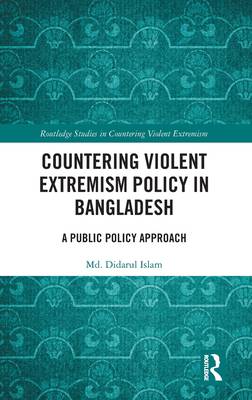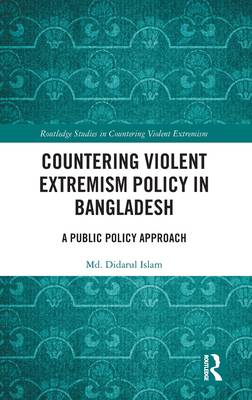
- Retrait gratuit dans votre magasin Club
- 7.000.000 titres dans notre catalogue
- Payer en toute sécurité
- Toujours un magasin près de chez vous
- Retrait gratuit dans votre magasin Club
- 7.000.0000 titres dans notre catalogue
- Payer en toute sécurité
- Toujours un magasin près de chez vous
Description
This book investigates how Bangladesh formulates its Countering Violent Extremism (CVE) policy as a norm-receiving country.
Norm-producing institutions and countries, such as the United Nations, the European Union, the UK, Australia, and Saudi Arabia, have diffused CVE norms in numerous countries through various mechanisms. Consequently, countries such as Bangladesh, Nigeria, Greece, Kenya, and many others, who initiated CVE policy late, became norm receivers. Despite widespread adoption and criticism of CVE policies globally, Bangladesh has shifted from traditional counterterrorism to CVE. This book provides the first comprehensive account of CVE policy formulation in Bangladesh through policy actor interviews. It offers a public policy perspective, integrating three theoretical dimensions: drivers of public policy; ideology, learning, and policy diffusion; and localisation. Through interviews with CVE policymakers, the book navigates policy actors' understanding of effective CVE practices, contributing factors, and the diffusion and localisation of external policies and norms in Bangladesh.
This book will be of interest to students of CVE, counterterrorism, South Asian politics, and international relations.
Spécifications
Parties prenantes
- Auteur(s) :
- Editeur:
Contenu
- Nombre de pages :
- 216
- Langue:
- Anglais
- Collection :
Caractéristiques
- EAN:
- 9781003863090
- Date de parution :
- 23-09-25
- Format:
- Livre relié
- Format numérique:
- Genaaid
- Dimensions :
- 156 mm x 234 mm
- Poids :
- 503 g

Les avis
Nous publions uniquement les avis qui respectent les conditions requises. Consultez nos conditions pour les avis.






